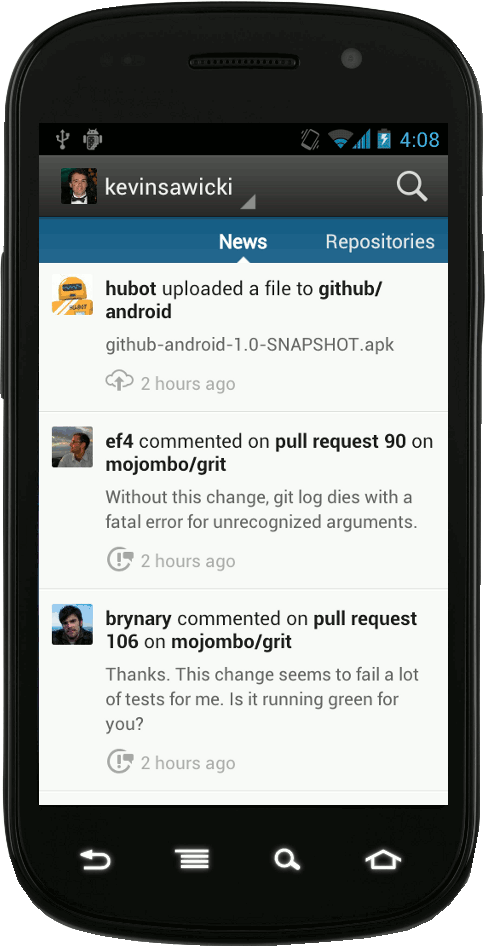GitHub Android App Released
We are extremely pleased to announce the initial release of the GitHub Android App available on Google Play. The app is free to download and you can also browse the…
We are extremely pleased to announce the initial release of the GitHub Android App available on Google Play. The app is free to download and you can also browse the code from the newly open sourced repository.

This release includes support for working with Issues and Gists as well as an integrated news feed for keeping up to date with all your organizations, friends, and repositories.
The app features a dashboard for quick access to all your created, watched, and assigned issues so you can always stay connected with the discussion and progress. You can also view and bookmark any repository’s issue list with configurable filters for labels, milestones, and assignees.

Head over to the github/android repository to see exactly how the app was built, report any feature requests or issues, and stay up to date as development of the app continues.
The GitHub Android app was built on some great open source projects that are definitely worth checking out if you are looking to build your own Android apps or want to contribute to the GitHub or Gaug.es apps:
-
JakeWharton/ActionBarSherlock
- Delivers a consistent Action Bar experience in both the latest and older Android versions.
-
JakeWharton/Android-ViewPagerIndicator
- Used to support swiping between issues, gists, etc.
-
jayway/maven-android-plugin
- Used to build and test the app using Maven.
-
alexgorbatchev/SyntaxHighlighter
- Used for syntax highlighting of Gists.
Written by
Related posts

GitHub availability report: January 2026
In January, we experienced two incidents that resulted in degraded performance across GitHub services.

Pick your agent: Use Claude and Codex on Agent HQ
Claude by Anthropic and OpenAI Codex are now available in public preview on GitHub and VS Code with a Copilot Pro+ or Copilot Enterprise subscription. Here’s what you need to know and how to get started today.

What the fastest-growing tools reveal about how software is being built
What languages are growing fastest, and why? What about the projects that people are interested in the most? Where are new developers cutting their teeth? Let’s take a look at Octoverse data to find out.